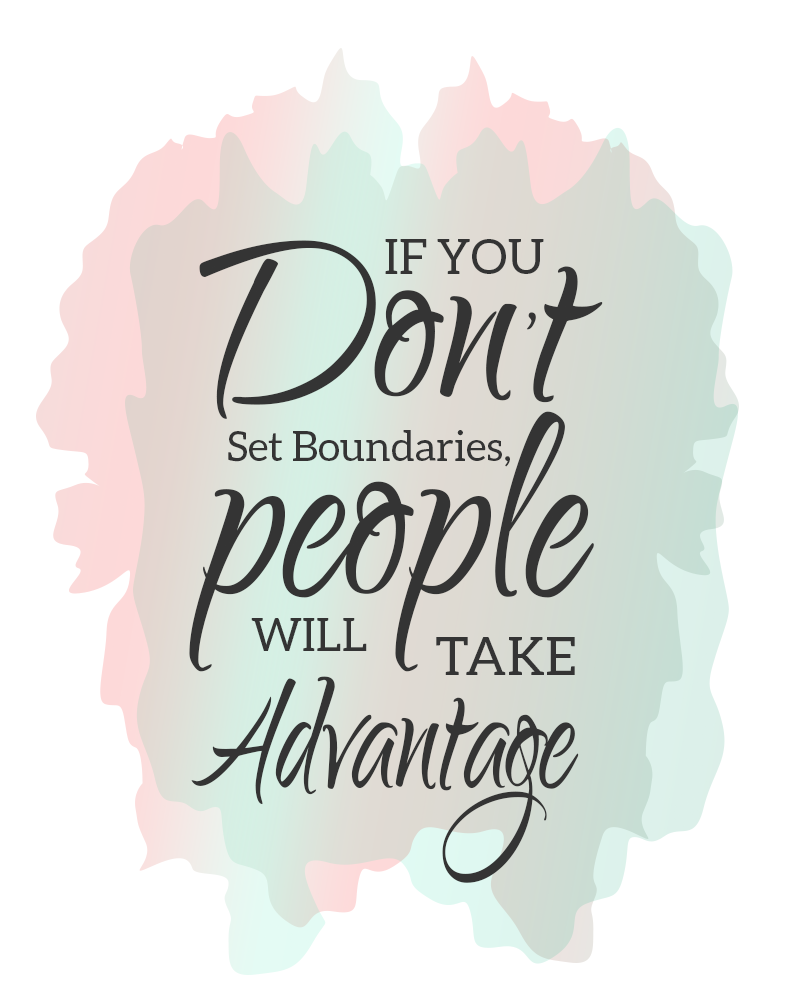Setting and maintaining boundaries in your life is a mental wellness practice. It’s a form of self-care. There are often certain individuals, situations, and activities that can take you to a negative place. You don’t need that in your life. It’s important to find ways to get over the guilt of setting boundaries so that you can reduce the stress in your life. Everyone is entitled to experience happiness and peace of mind.

Setting healthy boundaries is all about creating the best life experience. They speak about your values and the things that are important to you.
They’re a way of putting your needs first, and that’s okay.
It is not your responsibility if other people take on too much. If you have a friend who is constantly overloaded, you might want to help every now and then. If that person repeatedly comes to you for help though, then you need to take a stand.
This person could be a friend or coworker. It might even be someone in your household. Whatever the case, this person either intentionally or unconsciously takes advantage of you. That has to stop.
You can’t have a healthy relationship if you constantly feel resentful towards the other person. You’ll start feeling this way because your values and responsibilities get put on the back burner. Their needs are always first.
If you don’t set clear boundaries that stop this type of behaviour, they can start expecting it of you.
Before you know it, they will deliberately push their personal responsibilities aside. They know you’re going to be there to bail them out. Then, the one time you say you can’t help, they’ll flip out over it! Ever had that happen? Me too!
Clear communication can help prevent this happening (again).
Discuss your boundaries when both of you are emotionally cool and collected. Explain to them that you want them in your life but that certain things will have to change. If this person genuinely values you, they’ll understand.
There’s going to be a transition period, a healing time that needs to take place. Behaviours rarely change overnight. So after clearly defining what boundary you’re setting, forgive the offender if they overstep some borders once in a while. When they do, explain how you feel and the boundary they haven’t respected.
After a time, and if the person has respected your boundaries, show them you appreciate it. Take them for a meal or buy them a gift. You can also say thank you. This positive reinforcement can make that person want to respect your boundaries in the future. Positive reinforcement applies to you too and you can get over the guilt of setting new boundaries.
